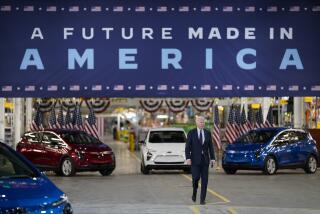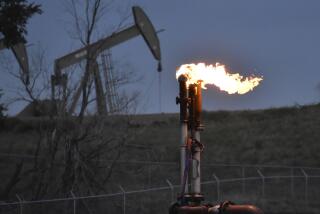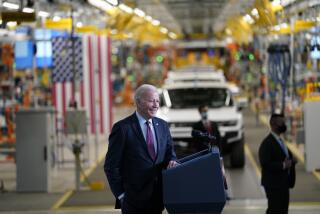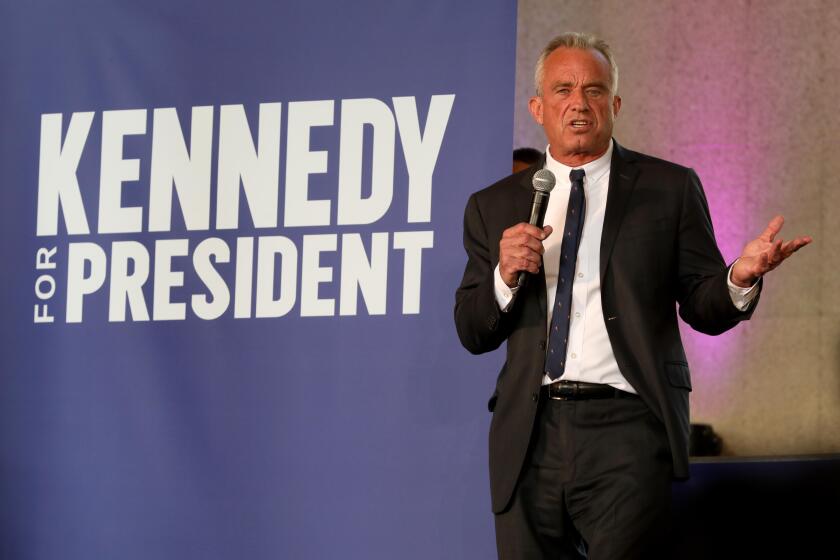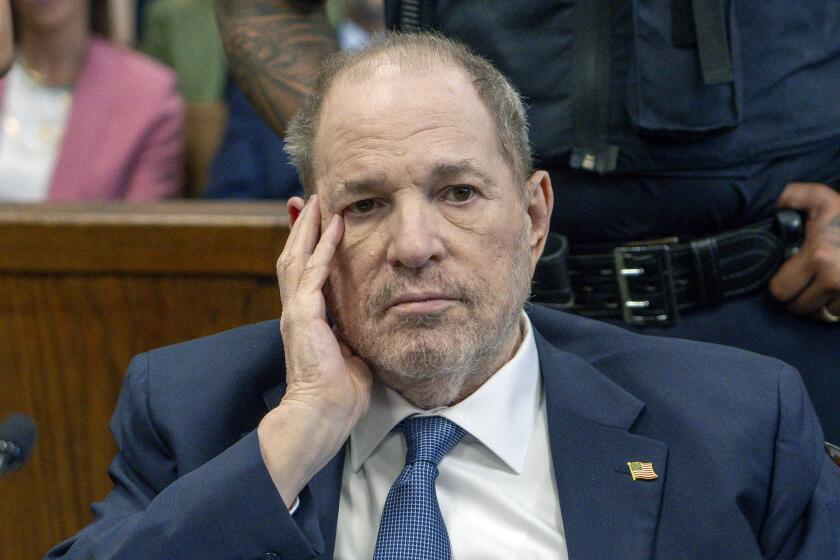Obama’s move to cut methane emissions may hinge on the economy
As President Obama tries to build an enduring legacy on climate change, he is finding that the biggest obstacle in his path may not be his many critics in Congress or lawsuits from oil companies but the precarious state of the economy.
That much was clear in the White House announcement Wednesday of what it framed as an audacious effort to cut by nearly half the greenhouse gas emissions from oil and gas production. Although the plan provoked predictable angry reactions from energy firms, it ultimately reflected an administration that is treading cautiously on its signature environmental cause, wary of disrupting — or even being perceived of disrupting — the boom in domestic energy extraction driving the economic recovery.
Obama stopped well short of exercising his full authority under the Clean Air Act. The long-awaited plan to cut methane emissions, a byproduct of oil and gas production, does not apply to most existing energy extraction facilities.
Environmentalists quickly expressed disappointment with that exemption. They warned that it may preclude Obama from making good on his pledge to reduce the nation’s overall greenhouse gases to 17% below where they were in 2005 within the next five years. The New York attorney general joined them in calling on the administration to push harder.
Methane is among the most potent drivers of climate change. It accounted for nearly 10% of the U.S. greenhouse gas released into the atmosphere in 2012 and has 25 times the heat-trapping potential of carbon dioxide, which is more commonly associated with global warming.
But oil and gas companies warned that aggressive new rules would be certain to drive up costs. Such concerns constantly nag at Obama, who has big plans to combat climate change but also vows that fossil fuels will remain at the foundation of his “all-of-the-above” energy use policy for the nation, which also includes reliance on growing shares of wind and solar power.
“This makes it less of a big push. They are taking a cautious approach, going after the low-hanging fruit,” said Thomas Lorenzen, a former Justice Department official who defended federal environmental mandates against legal challenges.
Obama’s persistent search for common ground with the fossil fuel industry has created a subtle tension with environmental groups.
But the White House is aware of how fickle voters can be about energy. Polls suggest support for alternatives to the status quo, yet the history books are filled with examples of executives stung by perceived overreach.
The federal stimulus programs prized by Obama, which invested heavily in renewable forms of energy, ultimately became a political headache for him when a politically connected California firm that was a major beneficiary of it collapsed in the run-up to his reelection. President Carter’s effort to move the country toward solar power contributed to his undoing. There was little protest when President Reagan dismantled the symbolic solar panels that Carter installed on the White House.
Economists differ on whether a more aggressive methane plan would have any noticeable effect on the recovery. Energy prices, many note, fluctuate all the time. Forcing gas and oil firms to retrofit their existing drilling operations with technology to capture emissions is unlikely to impede the sector’s boom, they say.
“But there are political considerations,” said Lucas Davis, an energy economist at UC Berkeley. “It can be expensive for these companies to do this work.”
Obama is up against dire warnings from the American Petroleum Institute. “Onerous new regulations could threaten the shale energy revolution, America’s role as a global energy superpower and the dramatic reductions in [carbon dioxide] emissions made possible by an abundant and affordable domestic supply of clean-burning natural gas,” Jack Gerard, president of the group, said in a statement.
The administration decided — for now — to rely on the industry to police itself for existing operations through a voluntary system of monitoring and reporting, reflecting the tightrope it is walking. Administration officials applauded the work that a number of companies are already doing to reduce emissions, while leaving the door open to impose tougher rules if they start to falter.
“What additional steps are appropriate beyond those steps we are outlining today will become more clear over time,” said Dan Utech, Obama’s advisor on energy and climate change.
The approach gives federal regulators time to ease companies into compliance, and thus moderate the backlash. But it also creates a much riskier timeline. Obama will be out of office in two years. Getting the entire industry onboard with the methane plan using the strategy his administration has chosen will take much longer. There is no guarantee that the next president won’t drop the whole thing.
“They are calculating that they will avoid a big showdown if they do this piece by piece,” said David Doniger, a director at the Natural Resources Defense Council. “I would feel more confident if the administration had more than two years to go. We had hoped they would get this all done by next year. You want to be as far down the road as you can under this team.”
evan.halper@latimes.com
Twitter: @evanhalper
More to Read
Start your day right
Sign up for Essential California for news, features and recommendations from the L.A. Times and beyond in your inbox six days a week.
You may occasionally receive promotional content from the Los Angeles Times.
